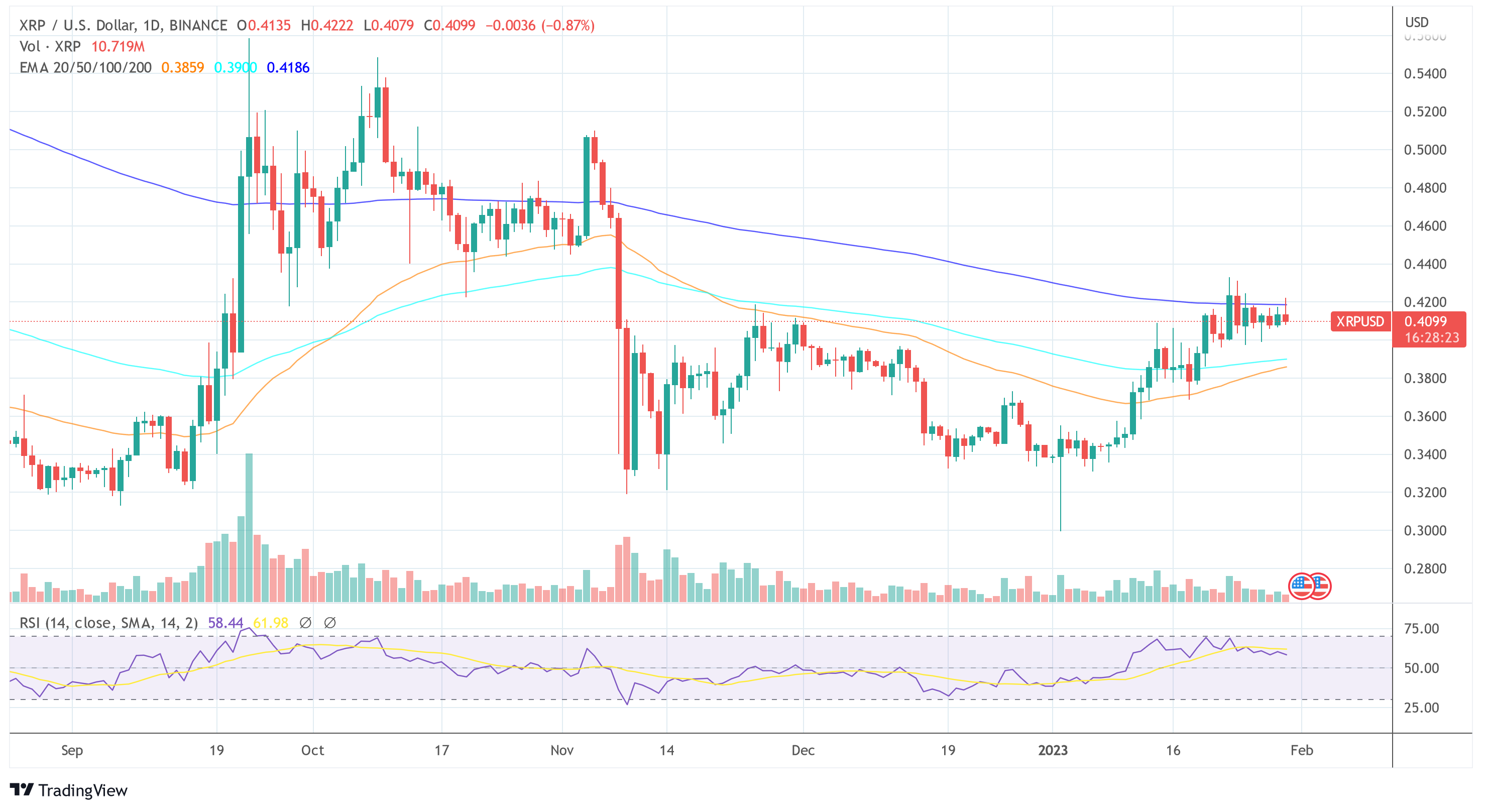In a piece of news that went undetected within the crypto community for a few days, the Southeastern European country of Montenegro has announced a partnership with Ripple. The country’s prime minister, Dr. Dritan Abazović tweeted about the pilot project with Ripple already on January 18, 2023.
Via the social media platform, the Montenegrin Prime Minister reported on his meeting with Brad Garlinghouse, CEO of Ripple, and James Wallis, Ripple Vice President for Central Bank Engagement and CBDCs and said:
Productive meeting with Ripple CEO Garlinghouse and Ripple Vice President of Central Bank Engagement James Wallis. We talked about developing a payments infrastructure that would enable greater financial accessibility and inclusion. Montenegro is open to new value and investment.
In addition, Dr. Abazović revealed that his country will be working with Ripple on a pilot project for a digital stablecoin: “In collaboration with Ripple and the Central Bank, we have launched a pilot project to build the first digital currency or stablecoin for Montenegro,” he stated and shared the image below.

Montenegro is a candidate country for membership in the European Union whose application has not yet been approved. Although Montenegro is not yet part of the eurozone, the EUR is used by Montenegro. This means that the euro is not a legal tender there; however, it is treated as such by the government and the population.
Montenegro’s Intentions with Ripple, XRP Involved?
Remarkably, Ivan Boskovic, the former Director of the Payment Systems and Financial Technology Department at the Central Bank of Montenegro (“CBM”), published an article in Currency Research entitled “Central Bank of Montenegro: How to Boost Banking and Payment Innovation in a Small Developing Economy” as recently as December 14, 2022.
Boskovic wrote that digital transformation is a fundamental source of long-term growth, especially in the financial sector. In this regard, smaller countries such as Montenegro face obstacles that are far more difficult to overcome than those in advanced economies compared to the world leaders; but further stated:
However, some countries such as Singapore, Luxembourg and Malta are among the frontrunners. Their visionary policies have paid off and they are now treated as role models for many others. The key question is whether their success can be easily followed or copied.
According to Boskovic, one of the factors behind the success of the aforementioned countries was the creation of a favorable political framework, which was necessary. And cooperation with Ripple could be another step in bringing knowledge and technology into the country.
As Bitcoinist reported, Central Bank Digital Currencies are a big focus for Ripple in 2023. The company recently hosted a webinar with the Digital Pound Foundation called “What Is A Digital Pound Really Useful For?” James Wallis delivered the keynote.
Brooks Entwistle, SVP and MD at Ripple, also revealed that the company does not intend to implement a solution for every central bank in the world, but is taking a targeted approach – with smaller central banks around the globe showing particular interest. Palau and the Kingdom of Bhutan recently made their partnerships with Ripple public.
Whether XRP or the XRP Ledger will play a role in the pilot project in Montenegro is unknown. In this context, however, Entwistle had a general explanation at hand.
“There are places where we can play, maybe with a sidechain to the XRP ledger. We may help with the interoperability across this, but it’s going to be different for every single central bank,” he said.
At press time, the XPR price stood at $0.4099, struggling to scale over the 200-day EMA.








